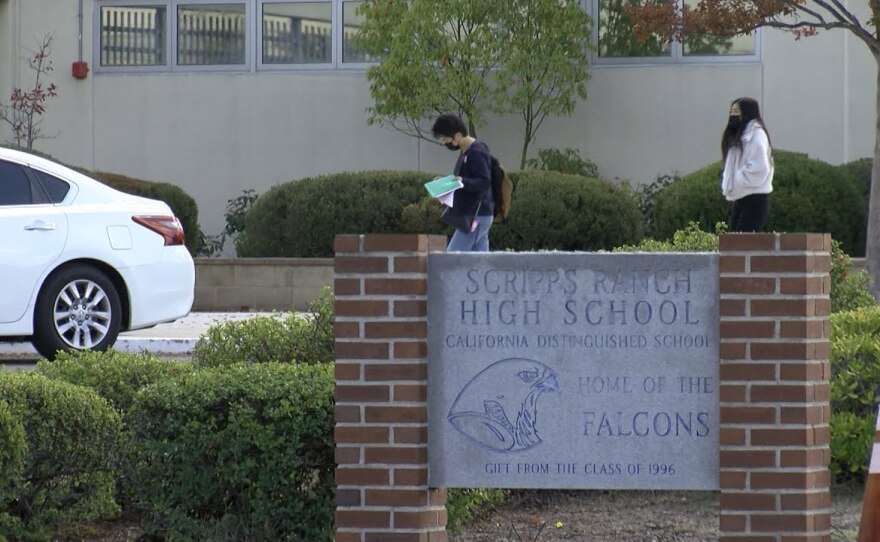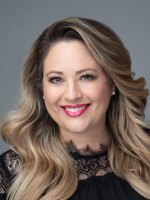A student of Scripps Ranch High School student is suing the San Diego Unified School District and Board of Education for religious discrimination over the COVID-19 vaccine mandate.
There are other lawsuits pending with the district, but this lawsuit is the first of its kind, where a student is personally suing over religious exemption.
The 16-year-old student-athlete is only being identified as “Jill Doe.” Her attorney, Paul Jonna, a special counsel for the Thomas More Society said the family does not wish to be identified for fear of retaliation and harassment. Jonna said the family is a devout Christian family that believes the vaccine is tainted with aborted fetal cells.
The COVID-19 vaccines, themselves, do not contain aborted fetal tissue. In the case of the Pfizer and Moderna mRNA vaccines, testing and development was done on fetal cell lines or cells that were grown in a laboratory from aborted fetal cells collected in the 1970s.
The Johnson & Johnson vaccine also uses the cell lines in the production and manufacturing from cell lines from the 1980s.
“There’s a very clear line of Supreme Court precedent that’s supportive of our position under the First Amendment," Jonna said. "What the San Diego Unified School District is doing here is they’re putting our client here in a position where they either have to take a vaccine that violates their sincere religious beliefs or they have to withdraw from sports, engage in remote distance learning and basically leave school.”
Jonna said the district is going above and beyond the state’s mandates, and points out that the district does allow religious exemptions for teachers and medical exemptions for students.
“What’s even more interesting is they are giving medical exemptions to children and so those children that qualify for medical exemption can come to class, can and participate in sports with no problem whatsoever," he said.
"So a key part of our legal theory here claims that if they’re going to offer any exemptions like medical exemptions, there are other groups of people that are not required to take the vaccine right away. Then they also have to offer religious exemptions, and that’s kind of a basic core principal in the First Amendment that should be relatively clear to any judge.”
Jonna said the family is very pro-life and not anti-vaccine. He would not identify their religion or church, only saying they were Christian.
The Vatican made it clear in a note on the morality of vaccines that whenever possible it’s best to avoid using aborted fetal cells, and no one should be forced to take a vaccine. But in this case people have a duty to get the vaccine to protect themselves and others.
“At the same time, practical reason makes evident that vaccination is not, as a rule, a moral obligation and that, therefore, it must be voluntary. In any case, from the ethical point of view, the morality of vaccination depends not only on the duty to protect one's own health, but also on the duty to pursue the common good. In the absence of other means to stop or even prevent the epidemic, the common good may recommend vaccination, especially to protect the weakest and most exposed. Those who, however, for reasons of conscience, refuse vaccines produced with cell lines from aborted fetuses, must do their utmost to avoid, by other prophylactic means and appropriate behavior, becoming vehicles for the transmission of the infectious agent. In particular, they must avoid any risk to the health of those who cannot be vaccinated for medical or other reasons, and who are the most vulnerable.”— Vatican
“The reality is public health is not a personal choice,” said Dawniel Carlock Stewart, who has three children in the district.
She believes misinformation and politicization of the vaccine are prolonging the pandemic and compromising the health of the most vulnerable.
“My husband is immunocompromised and my children are worried about their dad,” she said.
Still, Jonna said they will take this all the way up to the Supreme Court if they have to.
“We have to remember that we are a free country and mandatory vaccination policies are one thing," he said. "But it’s also very important to consider the religious liberty interest, not just in this one example but long term and what kind of precedent we’re setting when the state can tell you to do something that violates your faith.”
Representatives of San Diego Unified declined to comment, stating it’s the district’s policy not to comment on pending litigation.







